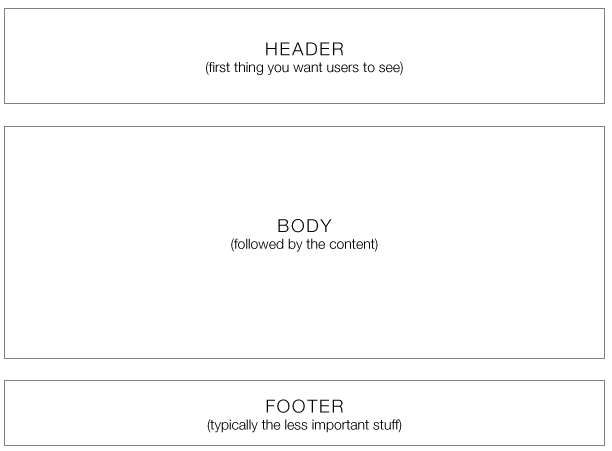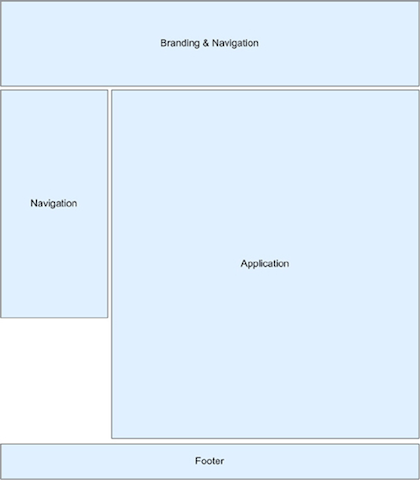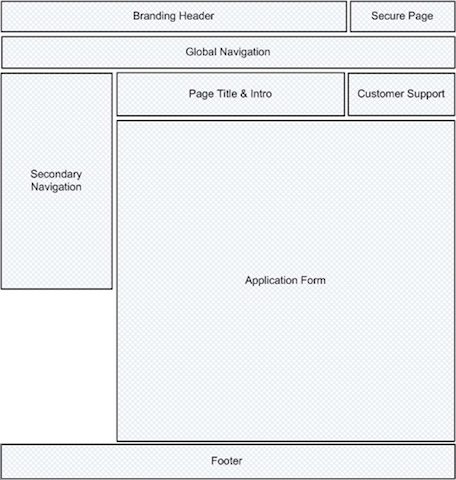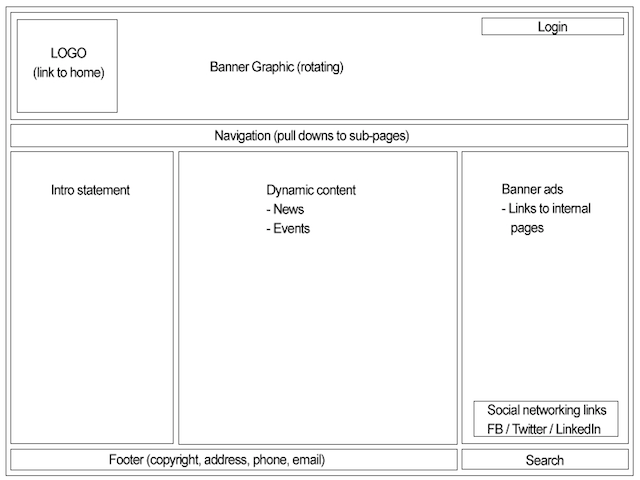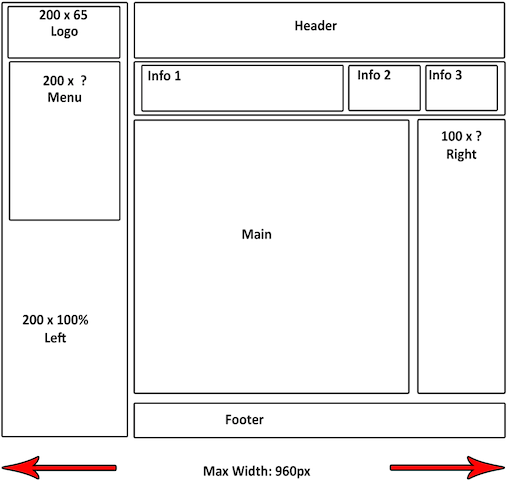Difference between revisions of "Wireframes"
| Line 13: | Line 13: | ||
This is still a simple layout, and note that now the position of the rectangles is inherently defined, though relative to each other. | This is still a simple layout, and note that now the position of the rectangles is inherently defined, though relative to each other. | ||
| − | Now add some functionality and | + | Now add some functionality and assign their positions: |
[[File:wireframe_2.png]] | [[File:wireframe_2.png]] | ||
Revision as of 23:10, 7 September 2014
'Wireframes' is the name for a simple technique to streamline the development. The technique basically assumes that your webpages are built from rectangles (see the box model) and it helps to create order in the development chaos by facilitating a visual approach. See also Wikipedia, review a beginners guide or view some general examples
A basic one looks like this:
Most geekLog pages do have this look-and-feel and the graphic is obvious and simple. Next steps are to refine the rectangles into more detail that reflects the content and functions we want to present.
First thing is to drill down the BODY rectangle, which comes with a more precise naming of HEADER and FOOTER:
This is still a simple layout, and note that now the position of the rectangles is inherently defined, though relative to each other.
Now add some functionality and assign their positions:
At this very moment the need for a clean design is seen. And some rectangles need specifications for width and height.
Window size is something to think about too.
All these rectangles can be given a proper name and used in communication in the development team.
Without such a wireframe comment on the content, hints etc. will loose its meaning.
